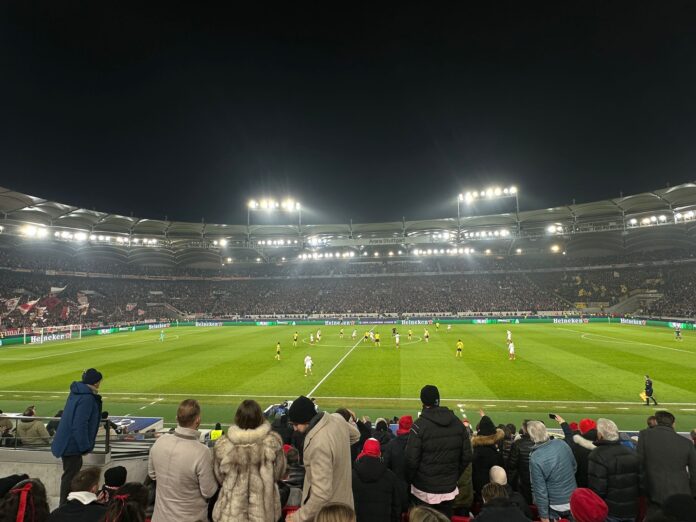The football agent is one of the most crucial figures in the football industry, playing a central role in three key aspects of a player’s career:
- Managing the daily needs of players and maintaining their relationships with current clubs.
- Negotiating employment contracts, whether for a new club or the renegotiation of terms with an existing one.
- Handling transfer negotiations, including agreements and transfer fees when applicable.
However, in the modern football world, agents are — and must be — much more than simple intermediaries.
Beyond Negotiation: The Role of a Modern Agent
Today’s agents don’t just negotiate deals; they are deeply embedded in the personal and professional lives of players. They engage in post-game analyses, support players through motivational challenges, address family and mental health concerns, assist with recovery from injuries, and help them navigate fears and uncertainties. Mental health, in particular, has become an increasingly critical area of focus, as it directly affects performance and well-being.
Unfortunately, not all agents rise to this level of involvement. Some limit their roles to signing representation contracts or overseeing transfers, neglecting the broader, more complex demands of career management. Intermediation is only one part of the job—often less than half of it. The true value of an agent lies in their ability to holistically manage a player’s career.
The introduction of the 2023 FIFA Football Agent Regulations is a welcome step toward recognizing this reality. The updated terminology acknowledges the evolving responsibilities of agents, moving away from the outdated “intermediary” framework that fails to reflect the multifaceted nature of the role.
The New Generation of Agents
The agent of tomorrow must adapt to an ever-changing football ecosystem. This includes embracing analytics and AI, understanding scouting methodologies, and being deeply familiar with the specific characteristics of the clubs where players may fit best. Agents must possess knowledge of sports law, negotiation techniques, and tax structures—or, at the very least, work closely with experts in these areas.
An effective agent builds a robust support network that includes doctors, nutritionists, tax advisors, media professionals, and more. They are not just advocates for their players during contract negotiations but also strategic partners who ensure every aspect of a player’s career is optimized.
AI, Data, and the Future
In the era of AI and data-driven decision-making, the agent of tomorrow must leverage technology to analyse performance metrics, assess market trends, and identify opportunities for growth. Artificial intelligence can help agents predict player development trajectories, tailor fitness and nutrition plans, and negotiate data-backed contracts that maximize value for their clients.
By integrating AI and data analytics into their practices, agents can offer players a competitive edge. For instance, understanding a club’s tactical tendencies, financial patterns, and historical player utilization can help agents position their clients for success.
The Role of Dopamine, Discipline, and Delayed Gratification
An agent’s role also extends into helping players develop the right mindset. In a world dominated by instant gratification, it’s crucial to guide players toward understanding the value of discipline and delayed gratification. Neuroscience teaches us that dopamine, the brain’s “reward chemical,” plays a key role in motivation and long-term satisfaction.
Players like Cristiano Ronaldo embody this principle. His unparalleled dedication to hard work and delayed gratification has allowed him to maintain peak performance for nearly two decades. By balancing effort and reward, Ronaldo continually increases and balances his dopamine reserves in ways that enhance motivation and fulfilment—an approach every player can learn from.
Agents can influence players to adopt similar mindsets. By encouraging hard work and resilience, agents help players avoid the pitfalls of a “soft” mentality, where too much comfort and too little effort lead to stagnation. This strategy not only improves performance but also cultivates a sense of accomplishment and long-term happiness.
An Example of Holistic Support
Consider a player struggling with poor form. A modern agent doesn’t just negotiate a transfer to a new club. Instead, they work to identify the root causes—whether it’s fitness, mental health, or tactical fit—and provide tailored solutions. This might involve consulting sports psychologists, engaging performance analysts, or even holding frank discussions about the player’s mindset and dedication.
By addressing these issues holistically, the agent ensures the player can overcome challenges and thrive in their career.
Final Thoughts
The agent of tomorrow is more than a negotiator; they are a strategist, a mentor, and a partner in the player’s journey. By embracing technology, fostering discipline, and prioritizing holistic well-being, the modern football agent can redefine what it means to represent a player—ushering in a new era of professionalism and excellence in the football industry.

